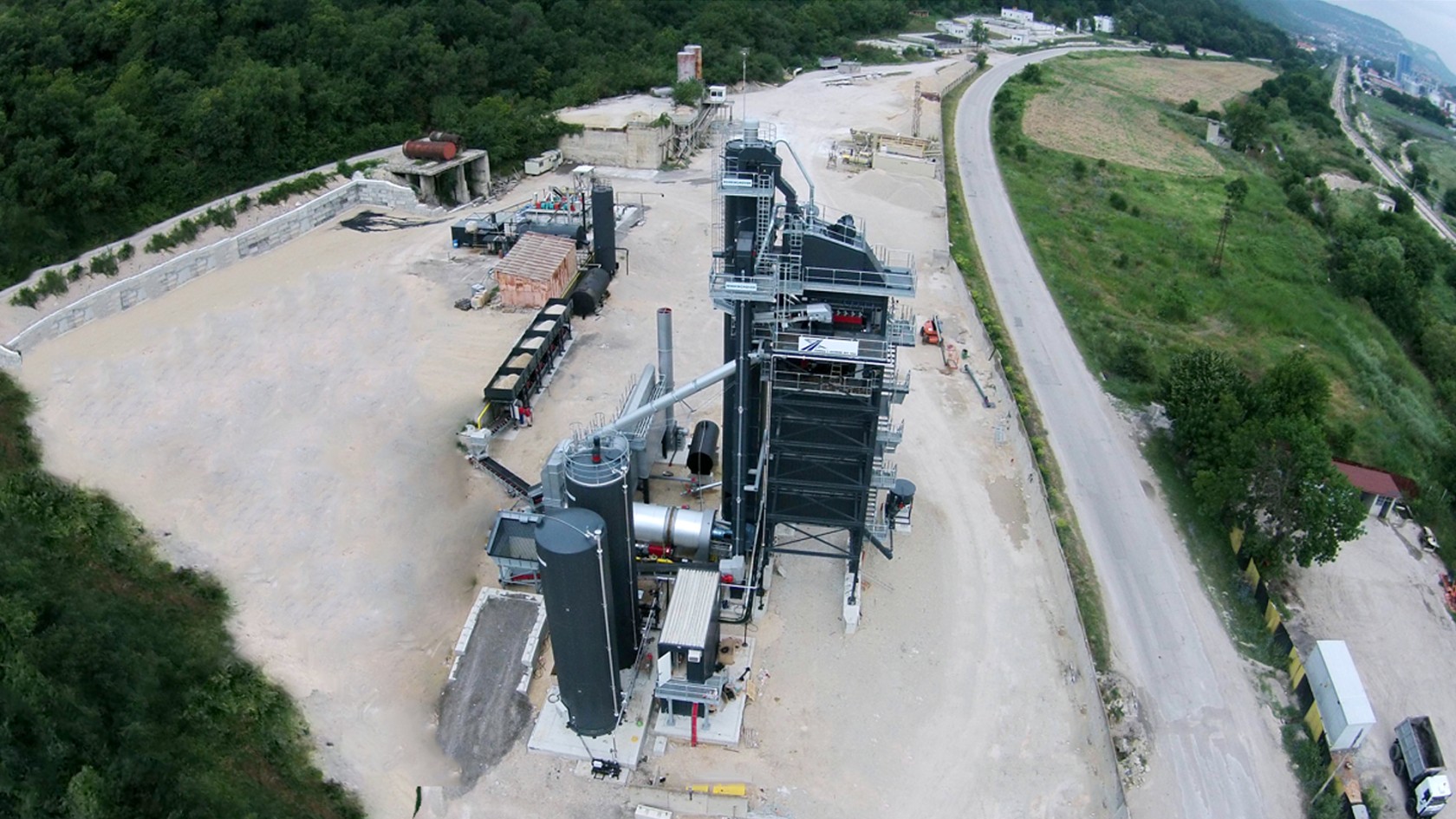All roads lead to ECO.


PIM PRO’s BENNINGHOVEN ECO 3000 is the very first plant in Bulgaria to produce low-temperature asphalt with foam bitumen and mastic asphalt.
They combine outstanding plant quality with productivity and can be easily relocated on a frequent basis: ECO asphalt mixing plants from BENNINGHOVEN are used successfully around the world. Apart from their ease of transport, another key reason for their success is their high flexibility, which enables customers and users to produce a variety of asphalt formulations – at mixing outputs of up to 320t/h.
Every investment a company makes has specific goals. PIM PRO, a construction company specializing in the production and laying of asphalt that operates its own quarry, asphalt mixing plants, polymer-modified bitumen plant as well as milling machines, pavers and rollers, had a highly ambitious goal in mind: The company wanted a new asphalt mixing plant for its Provadia site in Bulgaria that was capable of working more energy-efficiently while producing modern, high-quality asphaltic mixtures at the same time. BENNINGHOVEN took on the challenge and – based on an ECO 3000 equipped with several innovative technologies – delivered a solution that even exceeded PIM PRO’s requirements.
Rosen Koleliev, Managing Director of PIM PRO
Sustainable resource management and energy-efficiency are becoming increasingly important issues all over the world, including in Bulgaria. To satisfy these demands and offer diverse and high-quality mixtures, PIM PRO relies on groundbreaking technology from BENNINGHOVEN. With one and the same asphalt mixing plant, the company can supply and pave an extremely wide range of different asphalts, from cold or low-temperature asphalt and premium rolled asphalt through to stone mastic and mastic asphalt. This means that the plant needs to operate in a temperature range from 100°C to 220°C (depending on the end product) and precisely produce sophisticated formulations. BENNINGHOVEN plants can handle this huge temperature range as standard, which means that customers do not need to pay extra for separate heat-resistant components because e.g. the screen can withstand temperatures of 400°C – as required to produce mastic asphalt. This clearly demonstrates the extreme robustness and high production quality of BENNINGHOVEN technology. PIM PRO’s BENNINGHOVEN ECO 3000 is the very first plant in Bulgaria to produce low-temperature asphalt with foam bitumen and mastic asphalt.
As an all-rounder in road construction, PIM PRO is also highly proficient in the renovation of roads. The granulated RAP produced by WIRTGEN milling machines when stripping asphalt pavements in need of renovation is used as material for a new mixture. Thanks to the BENNINGHOVEN cold recycling system for dosing into the mixer, this process is cost-effective and preserves resources because it enables a RAP material rate of 30% when feeding directly into the mixer.
PIM PRO have gained a real competitive edge by using a foam bitumen module that is also integrated into the ECO 3000. This innovative technology, which BENNINGHOVEN can easily retrofit in existing plants thanks to preinstalled interfaces, makes it possible to reduce the temperature required to produce low-temperature asphalt by about 50°C to 110°C, compared to the 160°C required for conventional asphalt. This reduces the energy consumed in the production of the asphalt by around 9 kWh/t, which equates to 0.9 l of heating oil. CO2 emissions are also reduced.
The new BENNINGHOVEN weighing and mixing section ensures a premium mix quality thanks to a perfect fill level in the mixer combined with optimum mixing due to the generously sized geometry. Starting with the ECO 2000 plant size, all weighing and mixing sections have the following preinstalled interfaces as standard for feeding in RAP material, foam bitumen, granulate, powder, fibrous material and adhesive, as well as for a bag feed unit. ECO plants are thus already prepared for future retrofits. Further advantages of the new weighing and mixing section include, among other things, very good accessibility in all areas, plug & play connections for quick assembly and optimum illumination using LED technology.
BENNINGHOVEN have always relied on loading skip technology as the link between the mixer and mixed material loading silo. For their ECO asphalt mixing plants, BENNINGHOVEN have now developed a new, more cost-efficient alternative to the skip track and applied for a corresponding patent. The new diverter chute unit stands out due to its purely mechanical design that is particularly resistant to malfunctions. The intelligent design means that no sensors, motors or brakes are required, thus ensuring functional reliability worldwide. Another key improvement is fast and load-free positioning for silo selection. Segregation effects in the end product are minimized by active cross-mixing in the material transfer system, while the proven geometry of the BENNINGHOVEN mixed material loading silo also counteracts segregation in the mix.